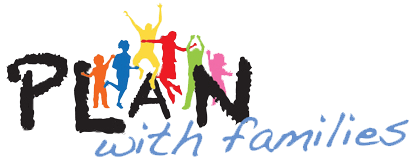Written by Paola Montalvo Ayala, coordinator & Matthew Brown, (former) manager of the Center for Dissemination & Implementation
Family-Based Treatment for Childhood Obesity (FBT) is a behavioral weight control intervention for children with obesity. Despite its recognized efficacy, it is mainly available in specialty clinics. Due to barriers posed by fragmentation of care and lack of provider time and training, many children do not receive this guideline-based level of treatment, as recommended by the U.S. Preventive Services Task Force.
In response, Dr. Denise Wilfley, PhD, the Scott Rudolph University Professor of Psychiatry, Medicine, Pediatrics, and Psychology at Washington University in St. Louis School of Medicine, aims to show that this therapy can work when delivered in a primary care setting. Primary care offers an optimal setting for delivery of Family-Based Treatment by capitalizing on the established relationship between primary care providers and families. Using interventionists co-located within the primary care setting overcomes barriers posed by fragmentation of care, and lack of provider time and training.
In 2016, Wilfley received funding from the National Heart Blood and Lung Institute to evaluate the effectiveness of Family-Based Treatment when it is delivered by trained interventionists embedded in the primary care setting compared to usual care (i.e., UC). In addition to collecting evidence regarding provider attitudes toward FBT, the “PLAN with Families” study looks at group differences in weight for the target child and target parent, group differences in weight for siblings, and participant level predictors of treatment success. This project has wrapped up the recruitment of families, and study visits are well underway.
In 2018, Wilfley’s work with childhood obesity treatment expanded when she received a grant from the Patient-Centered Outcomes Research Institute (PCORI) to pragmatically test the delivery of FBT in primary care settings. The project, called TEAM UP (Treatment Efforts Addressing Child Weight Management by Unifying Patients, Parents, and Providers), is a large (N=1296), multi-site comparative effectiveness trial that employs two childhood obesity treatments: 1) delivery of eSOC by the participating child’s primary care provider (the American Medical Association approach to obesity management which recommends a more gradual, staged-approach to childhood obesity counseling), and 2) eSOC combined with the delivery of FBT by a trained behavioral health coach. Additionally, the project applies the RE-AIM evaluation framework to its D&I analyses. Recruitment will begin in September 2019 in Missouri, Louisiana, and New York.

A strong network of dissemination & implementation researchers at Washington University has supported Wilfley’s work in this area. In addition to participating in WUNDIR meetings and other networking and collaboration opportunities, Wilfley draws upon the expertise of Washington University faculty scholars including Enola Proctor, PhD; Ross Brownson, PhD; Ana Baumann, PhD; Rachel Tabak, PhD; and Graham Colditz, DrPH, MD, MPH.
According to Wilfley, guidance from the Center for Dissemination and Implementation was instrumental in helping her team obtain funding for these implementation projects and has helped set a foundation for pursuing similar grants in the future.
Wilfley’s research has the potential to answer important questions about childhood obesity and to fill a critical evidence gap. Ultimately, her team will disseminate the results of this research to inform both routine care and healthcare policy, taking much-needed steps toward improving access to effective primary care-based treatment for all children with obesity.
Conceptual Model of Dissemination and Implementation Research
What: Family-Based Treatment for Childhood Obesity
How: Concurrent care of two generations of obesity; interventionists co-located within the primary care setting
Implementation Outcomes: Family adoption, family acceptability, provider acceptability, provider intended uptake, practice characteristics, intervention uptake, fidelity, and sustainability
Service Outcomes: Change in provider attitudes toward evidence-based treatment and perceptions of FBT as relates to their intention to use co-located FBT in their practices in the future
Patient Outcomes: Child weight change, parent weight change, sibling weight change; changes in child and parent delay of gratification
Context: Primary care



